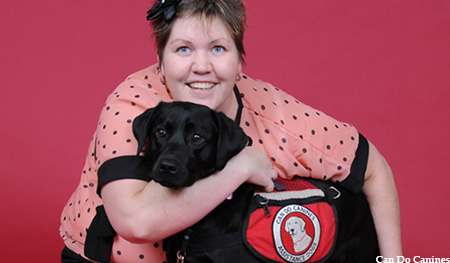#ThisIsDiabetes
#ThisIsDiabetes
 November is National Diabetes Awareness month. While dogs and cats both develop diabetes and veterinarians treat diabetic pets with insulin, I am not going to write about treatment of diabetes in pets. Instead, this blog will focus on the intersection between human diabetes and dogs – diabetes assist dogs.
November is National Diabetes Awareness month. While dogs and cats both develop diabetes and veterinarians treat diabetic pets with insulin, I am not going to write about treatment of diabetes in pets. Instead, this blog will focus on the intersection between human diabetes and dogs – diabetes assist dogs.
Dog Noses as Diagnostic Tools
Dogs have a tremendous sense of smell. Specialized training can teach dogs to sniff out such diverse maladies and diseases as migraines, cancer, narcolepsy, seizures and diabetes. During training, the dog learns to act to protect or alert their owner to an impending attack of the disease. When alerted in advance, people can take action to minimize the impact of their disease on their health and safety.
Detecting Hypoglycemia
One of the most feared side effects of insulin treatment for diabetes is low blood sugar or hypoglycemia. Diabetes assist dogs are trained to alert their owner of an impending hypoglycemic event. Research has shown a volatile organic compound, isoprene, increases in exhaled breath during hypoglycemia, and proponents of diabetes assist dogs believe this is the compound detected by trained dogs. Whatever they detect, diabetes assist dogs are viewed enthusiastically by their owners.
The Skeptics‘ View
Not everyone believes dogs’ noses are capable of identifying hypoglycemia in humans. We know dogs are able to sense our emotional state and when identifying an impending seizure, there are those who believe the “sniffing dog” is really sensing this emotional change. In a study in Diabetes Care, investigators used skin swabs from diabetic patients experiencing hypoglycemia to test trained diabetes assist dogs. This study could not document the trained dogs’ ability to correctly identify swabs obtained during hypoglycemia. In another study of diabetes assist dogs, trained dogs were not highly accurate in differentiating hypoglycemia from a normal blood sugar.
Whether they detect isoprene, emotional changes or something else, the value of a diabetes assist dog likely extends beyond just identification of hypoglycemia. Having a buddy when you are sick is clearly one of the best reasons for having one of these dogs.

































